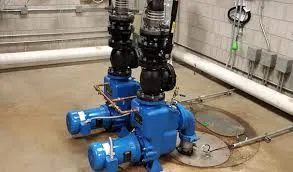Khmer
- Afrikaans
- Albanian
- Amharic
- Arabic
- Armenian
- Azerbaijani
- Basque
- Belarusian
- Bengali
- Bosnian
- Bulgarian
- Catalan
- Cebuano
- Corsican
- Croatian
- Czech
- Danish
- Dutch
- English
- Esperanto
- Estonian
- Finnish
- French
- Frisian
- Galician
- Georgian
- German
- Greek
- Gujarati
- Haitian Creole
- hausa
- hawaiian
- Hebrew
- Hindi
- Miao
- Hungarian
- Icelandic
- igbo
- Indonesian
- irish
- Italian
- Japanese
- Javanese
- Kannada
- kazakh
- Khmer
- Rwandese
- Korean
- Kurdish
- Kyrgyz
- Lao
- Latin
- Latvian
- Lithuanian
- Luxembourgish
- Macedonian
- Malgashi
- Malay
- Malayalam
- Maltese
- Maori
- Marathi
- Mongolian
- Myanmar
- Nepali
- Norwegian
- Norwegian
- Occitan
- Pashto
- Persian
- Polish
- Portuguese
- Punjabi
- Romanian
- Russian
- Samoan
- Scottish Gaelic
- Serbian
- Sesotho
- Shona
- Sindhi
- Sinhala
- Slovak
- Slovenian
- Somali
- Spanish
- Sundanese
- Swahili
- Swedish
- Tagalog
- Tajik
- Tamil
- Tatar
- Telugu
- Thai
- Turkish
- Turkmen
- Ukrainian
- Urdu
- Uighur
- Uzbek
- Vietnamese
- Welsh
- Bantu
- Yiddish
- Yoruba
- Zulu
Telephone: +86 13120555503
Email: frank@cypump.com
សីហា . 14, 2024 21:45 Back to list
Choosing the Right Septic Pump for Your Home's Waste Management Needs and Efficiency
Understanding Septic Pumps Essential Components of Wastewater Management
Septic tanks are critical components of wastewater management systems, especially in rural areas where municipal sewer systems are not available. Within these systems, septic pumps play a crucial role in ensuring the efficient disposal of wastewater. Understanding septic pumps, their functions, types, and maintenance can help homeowners make informed decisions regarding their septic systems.
What is a Septic Pump?
A septic pump is a device used in a septic system to move wastewater from the septic tank to the drain field. Typically, throughout the day, wastewater from toilets, sinks, showers, and appliances flows into the septic tank. This tank is where the primary treatment of wastewater takes place, allowing solids to settle to the bottom, forming a sludge layer, while lighter materials, such as grease and oils, float to the top, creating a scum layer. The wastewater in between is known as effluent, which needs to be dispersed into the soil properly.
Types of Septic Pumps
There are several types of septic pumps, each designed for specific applications
1. Effluent Pumps These are used to pump the liquid effluent from the septic tank to the drain field. They are typically submersible and designed to handle solids up to a certain size.
2. Grinder Pumps In situations where the sewage must be pumped uphill, grinder pumps are essential. They grind solids into smaller particles, allowing them to be transported through smaller pipes over longer distances and elevations.
3. Lift Pumps Similar to grinder pumps, lift pumps are used to raise the level of the wastewater in scenarios where gravity cannot carry it to the drain field.
4. Commutator Pumps These pumps are often used in more complex wastewater treatment systems, where greater control over wastewater handling is necessary.
Importance of Proper Maintenance
To ensure the longevity and efficiency of a septic pump, regular maintenance is crucial
. Homeowners should keep the following points in mind- Regular Inspections Scheduled checks by a professional can help identify potential issues before they become major problems. This includes assessing the pump's operation and the surrounding system.
septic pump

- Avoiding Overloading Excessive water flow can overwhelm the septic system. Homeowners should be mindful of water usage and manage their wastewater accordingly.
- Preventing Clogs Ensuring that only human waste and toilet paper are flushed can prevent clogs that can damage the pump or the septic system.
- Cleaning Filters Many septic pumps have filters that should be cleaned regularly to avoid blockages.
- Monitoring Alarm Systems If the septic pump system has an alarm, homeowners should pay attention to any alerts indicating a malfunction.
Signs of a Failing Septic Pump
It is essential for homeowners to recognize the signs of a failing septic pump, which may include
- Unpleasant Odors Foul smells around the septic tank area can indicate a problem with the pump/system.
- Backups If toilets or drains begin to back up, it can indicate that the pump is not functioning correctly.
- Slow Draining Slow drainage in sinks, showers, or bathtubs may suggest a pump issue.
- Pooling Water If there's pooling water in the yard near the septic system, it might signal a pump malfunction or over-saturation of the drain field.
Conclusion
Septic pumps are essential for the efficient functioning of a septic system, and understanding their role can help homeowners take better care of their wastewater management solutions. By recognizing the types of pumps available, prioritizing maintenance, and learning to identify warning signs of problems, homeowners can ensure their septic systems operate effectively and avoid costly repairs. In the end, investing time and resources into proper septic pump care not only protects individual households but also contributes to environmental health.
-
Custom Drilling Mud and Slurry Pump Supplier - High Efficiency, Tailored Solutions
NewsJun.10,2025
-
Supply Vertical Submersible Sewage Pump High-Efficiency WQ/QW Pumps Supplier
NewsJun.10,2025
-
Premium Sewage Ejection System & Pumps Efficient Waste Removal
NewsJun.09,2025
-
Premium Wholesale Slurry Pump Impellers Durable & Efficient Slurry Handling
NewsJun.09,2025
-
Top Sewage Pump Companies Durable Industrial Solutions for Efficiency
NewsJun.09,2025
-
Heavy Duty Slurry Pumps - OEM High Performance & Bulk Wholesale
NewsJun.09,2025










